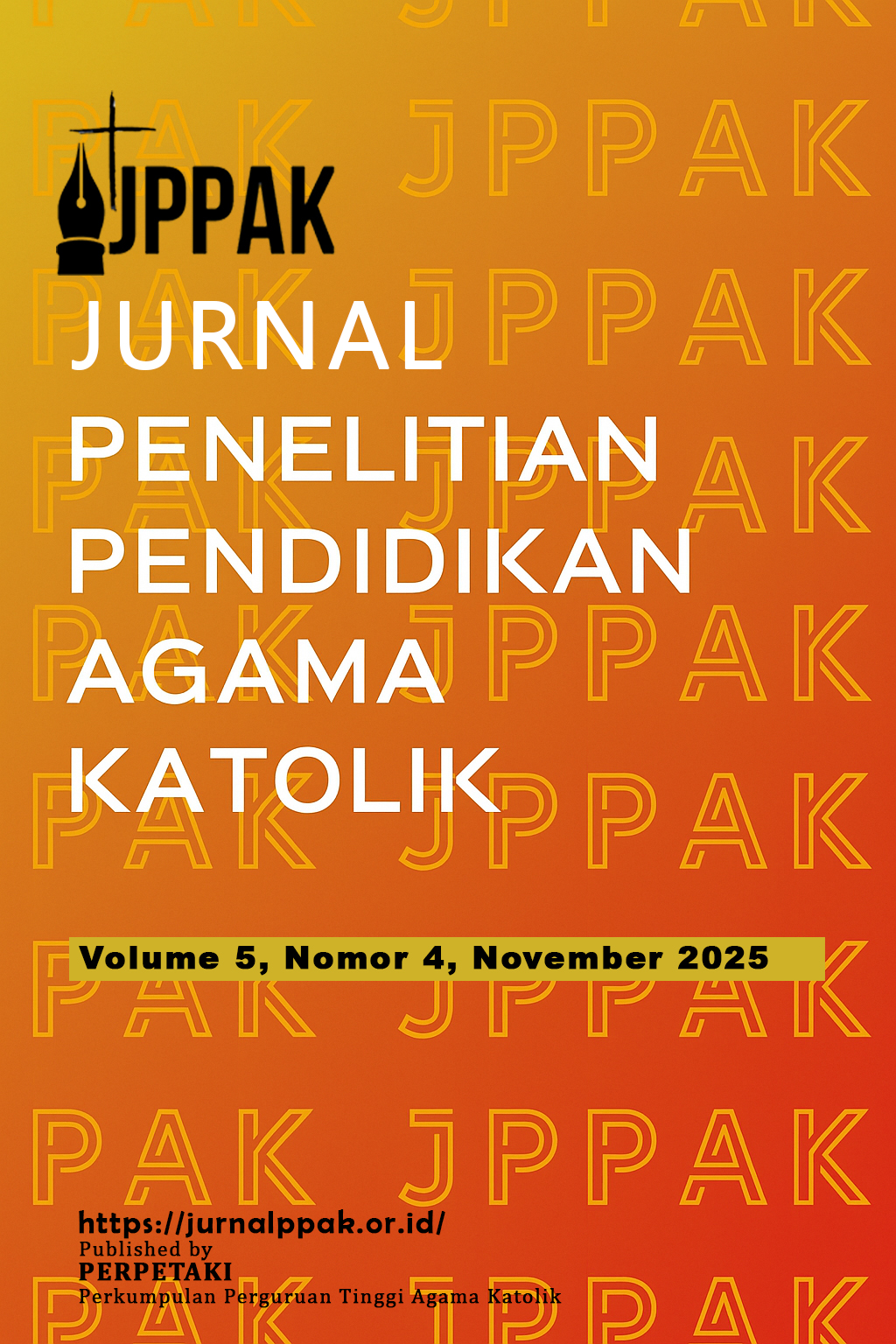EASY PEOPLE'S PARTICIPATION IN THE DEVELOPMENT OF A CHURCH BASED COMMUNITY IN THE DIGITAL ERA
DOI:
https://doi.org/10.52110/jppak.v5i4.162Keywords:
Prayer together; community; pastoral ministry, disabilityAbstract
People with disabilities or disabilities, who are often also called people with disabilities, actually have equal opportunities in all aspects of life. This aspect is not only a matter of social rehabilitation or social assistance, but concerns all aspects of life related to the rights of persons with disabilities. however, the reality is that people with disabilities often do not enjoy the same opportunities as other people. Various facts show that there is unfair and discriminatory treatment that is still often experienced by Persons with Disabilities when meeting their basic needs. Negative stigma has interpreted persons with disabilities as synonymous with people who are sick, weak, helpless, and only burden other people. This fact makes persons with disabilities need special attention which is the responsibility of and involves all parties, including the government, society and the Church, including Catholics. Catholic young people are the future of the Church, therefore young people need to be prepared to assume responsibility for the future of the Church and their nation. Youth and youth are not the only target of the Church's concern. They are also actors of Evangelization and social renewal. They make up half of all God's people. They are sensitive to the values of justice, peace, brotherhood, friendship, solidarity, and so on. But they are also burdened with restlessness, deception, restlessness and fear, again temptations. In them to instill respect for everyone, love for neighbor, justice, the habit of prayer and love of purity. As one of OMK's goals, namely love for others, persons with disabilities are an important part of the perspective of young Catholics (OMK). People with disabilities basically have the same living conditions as other humans. They have problems, needs, and are entitled to their rights as other citizens.
Downloads
##submission.downloads##
Submitted
Accepted
Published
How to Cite
Issue
Section
License
Copyright (c) 2025 Edita Tersa Risa

This work is licensed under a Creative Commons Attribution-ShareAlike 4.0 International License.
Copyright Notice and Permissions
Jurnal Penelitian Pendidikan Agama Katolik offers immediate open access to all its content on the principle to make researches freely available to the public, especially to the scholars, to support greater global exchanges of knowledge. This journal encourages all scholarly authors to allow their research openly available, free access and without time restrictions.
All articles published Open Access will be immediately and permanently free for everyone to read and download. Under the CC BY-SA 4.0 license, authors retain ownership of the copyright for their article, however authors grant others permission to use the content of publications in Jurnal Penelitian Pendidikan Agama Katolik (JPPAK) in whole or in part provided that the original work is properly cited. Users (redistributors) of Jurnal Penelitian Pendidikan Agama Katolik (JPPAK) are required to cite the original source by including at least: the full title of the article, the author's or authors' full name(s), JPPAK as the initial source of publication, year of publication and volume number using a propriate citing method.
Copyright encompasses exclusive rights to reproduce and deliver the article in all form and media, including reprints, photographs, microfilms and any other similar reproductions, as well as translations. The reproduction of any part of this journal, its storage in databases and its transmission by any form or media, such as electronic, electrostatic and mechanical copies, photocopies, recordings, magnetic media is prohibited without consent of Jurnal Penelitian Pendidikan Agama Katolik (JPPAK).
Jurnal Penelitian Pendidikan Agama Katolik (JPPAK) is licensed under a Creative Commons Attribution Share-Alike 4.0 International. (CC BY-SA 4.0)
Authors who publish with Jurnal Penelitian Pendidikan Agama Katolik (JPPAK) agree to the following terms:
- Authors retain copyright and grant the journal right of first publication with the work simultaneously licensed under a Creative Commons Attribution Share-Alike 4.0 International (CC BY-SA 4.0) license that allows others to share the work with an acknowledgement of the work's authorship and initial publication in this journal.
- Authors are able to enter into separate, additional contractual arrangements for the non-exclusive distribution of the journal's published version of the work (e.g., post it to an institutional repository or publish it in a book), with an acknowledgement of its initial publication in this journal.
- Authors are permitted and encouraged to post their work online (e.g., in institutional repositories or on their website) after the publication on JPPAK, as long as it not published on other OJS for it will be treated as plagiarism by plagiarism checker apps. It can lead to productive exchanges, as well as earlier and greater citation of published work (See The Effect of Open Access).












